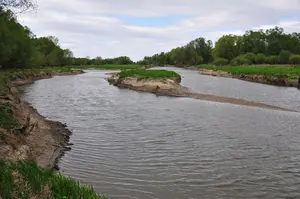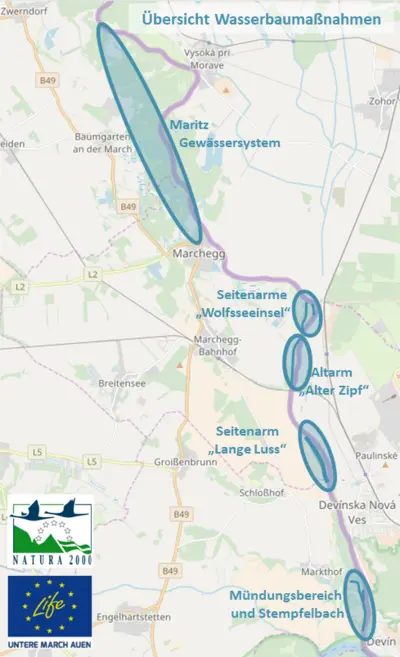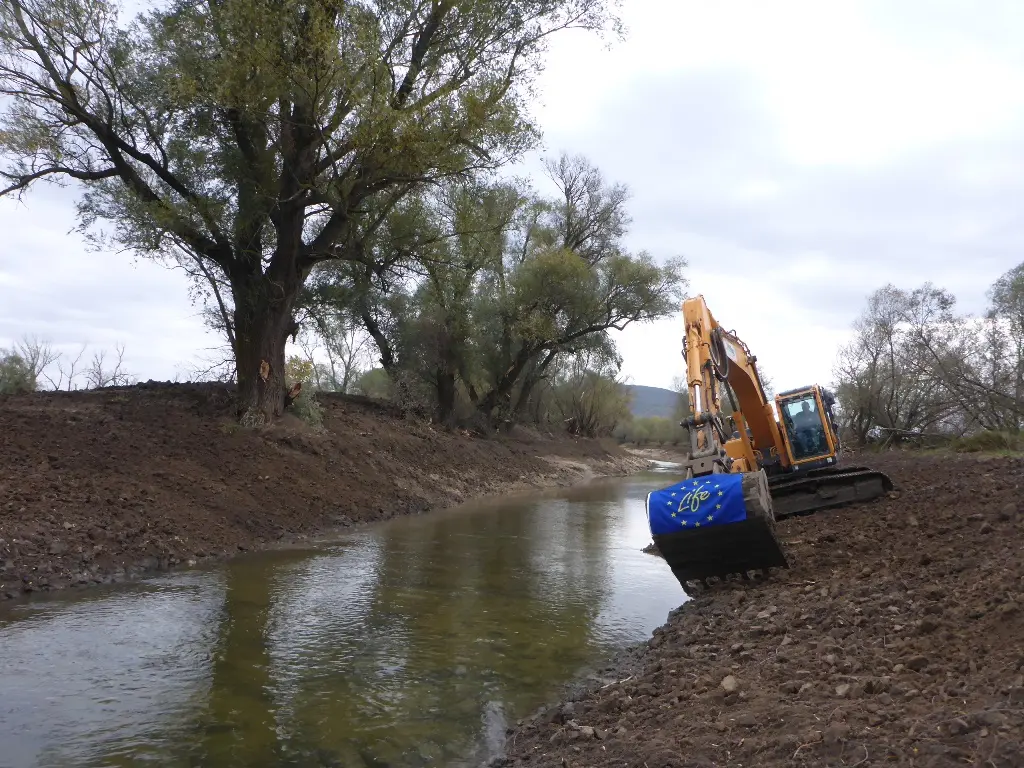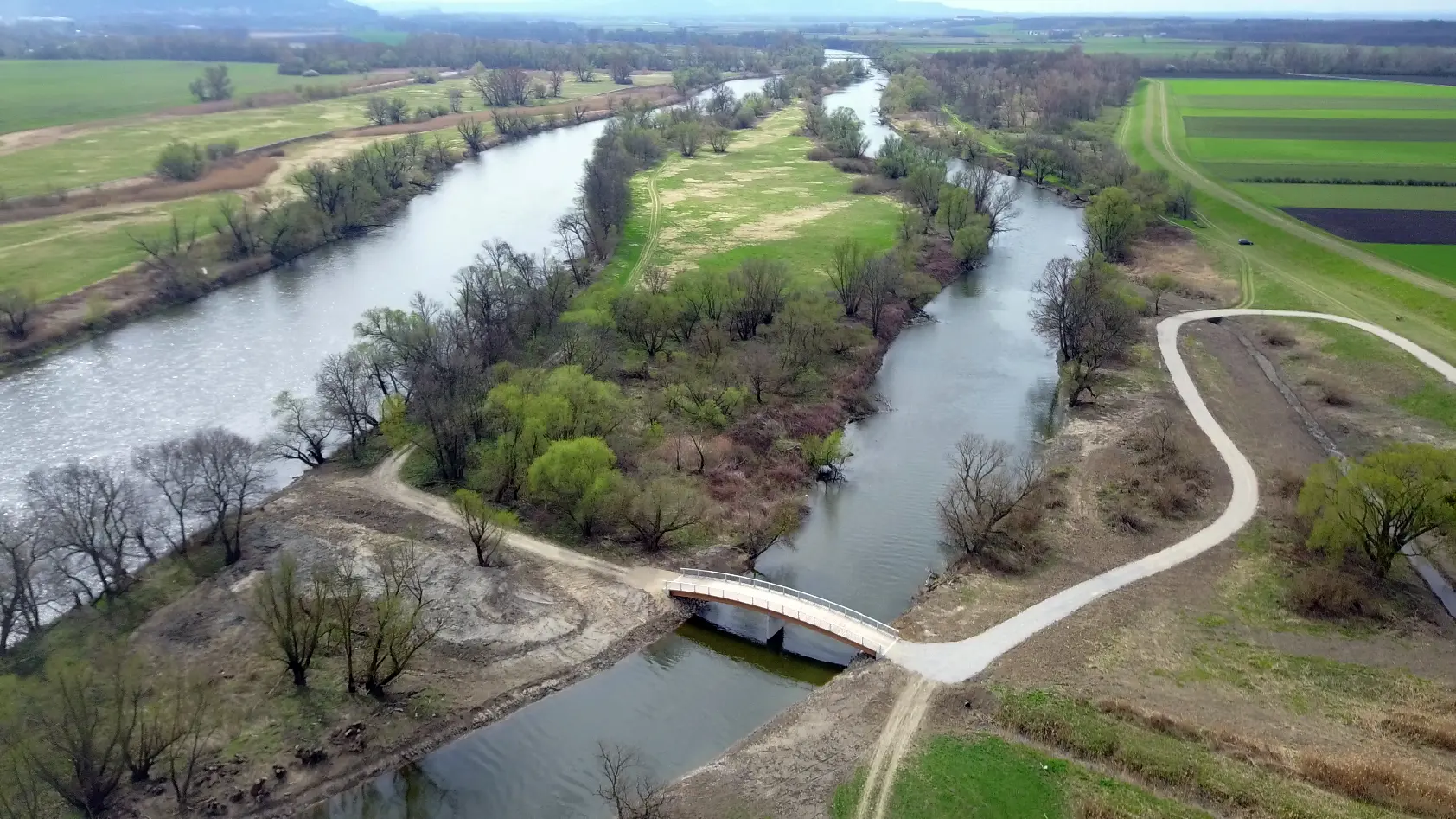
The river March is the biggest left bank tributary in the upper course of the Danube and simultaneously the only near-natural lowland river of Pannonian character in Austria. Periodic floods are characteristic for the meadows and floodplain forests along the March. Due to regulation and intensification measures during the former century, the river is only in moderate status. The habitats of endangered animal and plant species are only limitedly available.
In the course of the EU co-funded project “Restoration of the Lower Morava floodplains” ambitious renaturation measures and species protection projects were implemented.
The project´s objectives were the extensive restoration of a near-natural river dynamic in the floodplain forests of the Lower March, the extensification of cultivation as well as targeted protection measures for endangered species.
The most important task was the restoration of a near-natural river dynamic. In order to achieve that existing regulation structures, such as large stone armour blocks along the riverbanks, are in part being utterly removed and dismantled around the transversal structures in order to initiate a dynamic development. By doing so, the connection between river and the adjoining riparian areas was restored.
Further information is available here.
Milestones
- obtaining official permits for the first construction phase (December 2015)
- start of first construction phase (4th quarter 2017)
- completion of first construction phase (1st quarter 2018)
News and project status
After construction works started in September 2017, the sidearm system in the estuary area of the Morava and the mouth of the Stempfelbach were completed in March 2018. Also in March 2018 the sidearms "Alter Zipf" and "Wolfsseeinsel" were reconnected to the main river. By the end of October 2018 the sidearm "Lange Luss" was also reconnected to the flow regime. Thus, all planned sidearms were realised. In 2019, the consistency of the river system Maritz was improved.
The project was successfully concluded on October 31st, 2019.
Overall, about 115,000m³ of sediments were removed during the restoration of the river to ensure a near-natural dynamic on a length of about 7km. During this project, around 15ha of floodplain forests were created. The created habitats were successfully adopted by naturally-occuring plants flora and fauna.


